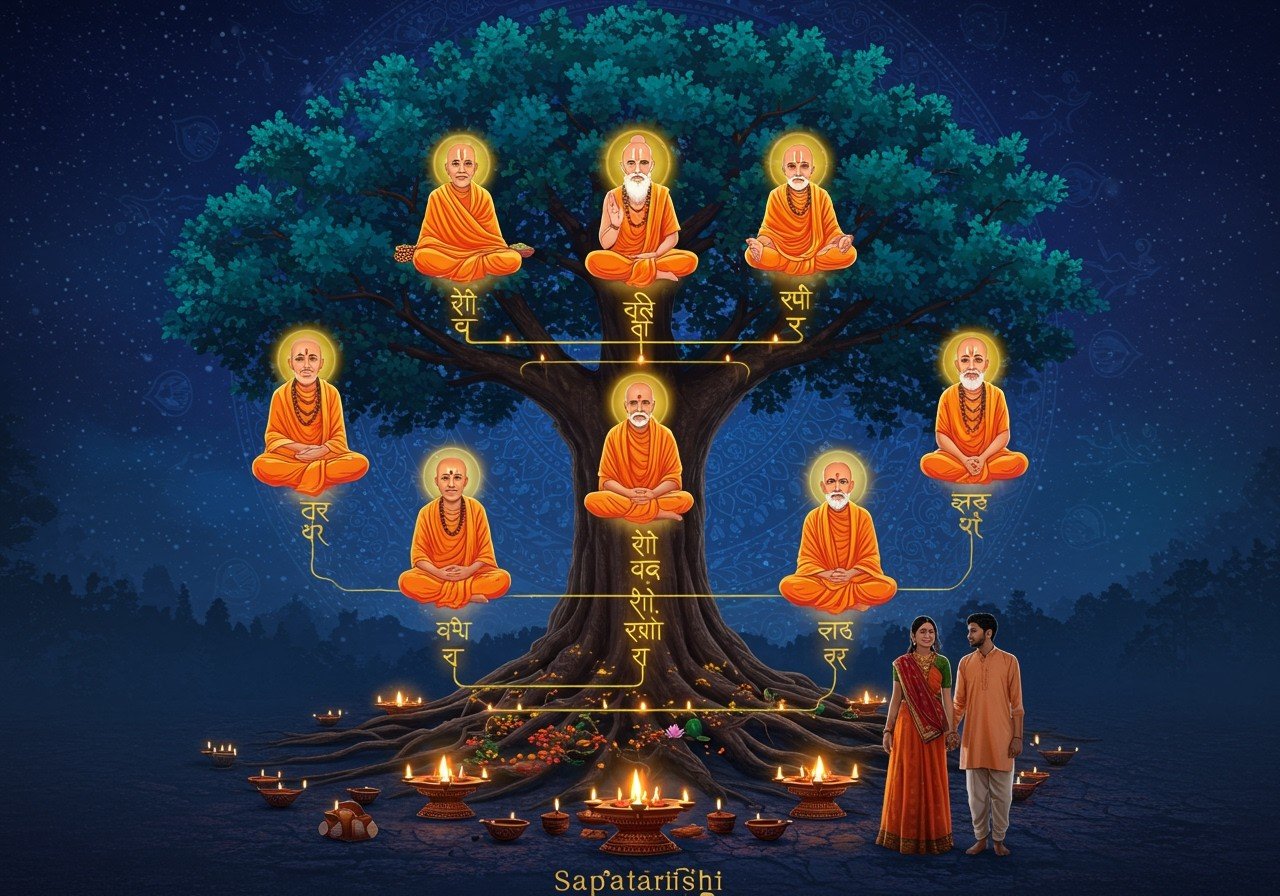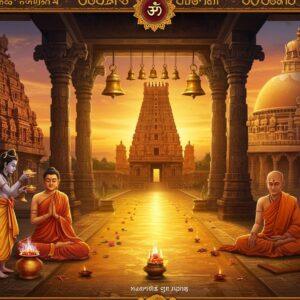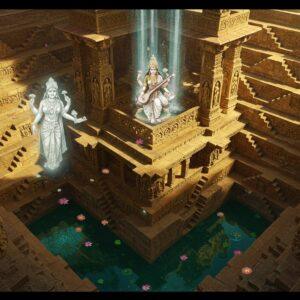
Gotra, a cornerstone of Hindu tradition, holds deep significance for those who value their cultural identity. This ancient system of classifying ancestral lineages plays a vital role in maintaining family history and influencing social customs, particularly in marriage. Let’s delve into the meaning of Gotra and explore its relevance in contemporary practices.
What is Gotra?
Derived from Sanskrit, Gotra translates to ‘lineage’ or ‘clan.’ It signifies a patrilineal system, tracing descent from a common male ancestor, often a revered sage or rishi. In Hinduism, Gotra categorizes families into distinct groups sharing a common ancestral heritage. Across India, different regions and communities have unique Gotra systems, adding to the rich tapestry of cultural identities and family histories. Understanding these variations provides a deeper understanding of one’s roots and plays a crucial role in social and religious practices. It’s a thread connecting us to our ancestors, reminding us of where we come from.
Significance of Gotra in Marriage
Gotra plays a pivotal role in Hindu marital traditions. It acts as a traditional safeguard against marriages within the same lineage, considered akin to marrying a sibling. This practice helps maintain genetic diversity and aligns with the principles of Dharma. Traditionally, sharing the same Gotra signifies shared ancestry, making marriage inappropriate. This custom continues to influence marital decisions in many communities, underscoring the importance of understanding one’s Gotra for upholding traditional norms.
In modern times, couples sharing the same Gotra may face challenges if they wish to marry. Perspectives are evolving, leading to discussions on balancing cultural norms with changing societal values. Finding a way to respect tradition while embracing new practices is a conversation many families are now having.
How is Gotra Determined?
Determining one’s Gotra is a time-honored tradition. It is passed down through the father, representing the continuation of the paternal line. This practice is often reinforced during important family milestones like the naming ceremony. Families carefully preserve Gotra information, transmitting it across generations as a cherished piece of their history. Different communities might have unique approaches to determining Gotra. Some may consider the maternal side or incorporate alternative family practices. Inter-caste marriages can also introduce complexities, highlighting the adaptability of this tradition in today’s society.
Common FAQs About Gotra
Gotra often raises questions and misconceptions. A common query is whether a woman’s Gotra changes after marriage. Practices vary – some communities maintain the woman’s original Gotra, while others adopt the husband’s. Another point of discussion is the possibility of adopting a new Gotra, a practice traditionally uncommon but increasingly relevant in our evolving society. Gotra’s influence extends beyond marriage; it shapes religious ceremonies and influences cultural identity and social interactions within communities. Understanding Gotra deepens our connection to our heritage and provides clarity in navigating family and social engagements.
Modern Perspectives and Changing Dynamics
Globalization and modernization have shaped how we perceive Gotra, particularly among younger generations. More flexible interpretations are emerging, especially in urban areas where traditional norms often face reevaluation. Stories of families navigating these traditions highlight the delicate balance between honoring heritage and embracing personal beliefs. Online platforms provide spaces for discussions about Gotra, fostering a dynamic understanding of this ancient practice. These shifts reflect a broader movement towards adapting cultural practices to resonate with contemporary identities while acknowledging the richness of the past. It’s about finding harmony between tradition and individual expression.
How Poojn.in Helps You Follow Gotra Traditions
At Poojn.in, we understand the deep significance of Gotra in Hindu rituals and ceremonies. We offer a wide selection of puja essentials and expert guidance to help you perform rituals correctly according to your Gotra:
- Expert Consultation: Our knowledgeable team offers personalized guidance on Gotra-specific requirements for various ceremonies. We’re here to help you navigate the nuances of your family’s traditions. Reach out to us at 03369029784 or WhatsApp 9476142738 for personalized assistance. We’re always happy to share our knowledge and help you honor your heritage.
- Pure Sindoor Collection: Sindoor holds deep cultural significance for married women. We offer a range of traditional, high-quality Sindoor made from natural ingredients, essential for upholding Gotra traditions. Our Sindoor is carefully sourced and tested for purity, ensuring it meets the highest standards of quality and tradition. You can explore our Sindoor collection here.
- Complete Puja Samagri: Find everything you need for Gotra-specific rituals, all in one place. From pure copper vessels to traditional dhoop and agarbatti, sacred threads, authentic kumkum, and beautifully crafted puja thalis, we have it all. We’ve curated a collection of essential items to make your rituals meaningful and complete.
- Convenient Online Shopping: Order all your ritual items from the comfort of your home through our easy-to-use website, Poojn.in. We make it convenient for you to access authentic items without the hassle of traditional shopping.
- Quality Assurance: Each product is carefully verified for authenticity and religious compliance, ensuring that you receive items suitable for your Gotra-related ceremonies. We understand the importance of using genuine and appropriate items in your rituals.
- Pan-India Delivery: We deliver across India, ensuring access to traditional items no matter where you are. We believe everyone should have access to the items they need to honor their traditions.
Visit Poojn.in or contact us to ensure your rituals align with your Gotra traditions while using authentic, high-quality puja items. We’re here to help you every step of the way.
Embracing Tradition and Change
Understanding Gotra provides insights into the vibrant tapestry of Hindu culture—a beautiful blend of ancient customs and modern interpretations. As society evolves, so does the meaning and significance of Gotra. While it remains a cornerstone of marriage customs and cultural identity, today’s world encourages a thoughtful dialogue between tradition and contemporary values. Gotra continues to guide family and social decisions for many, providing a strong link to ancestral roots. As individuals and communities explore new ways of living, there’s an opportunity to honor traditions while embracing change. By acknowledging both the old and the new, we can forge a path that respects heritage and embraces personal choice. The key lies in understanding and respecting the diversity of practices surrounding Gotra. Whether adhering strictly to traditional paths or forging new ones, the essence of Gotra endures—a testament to the everlasting connection between past and present.
Frequently Asked Questions on Gotra
What does Gotra mean?
Gotra signifies a lineage or clan based on ancestral descent, often linked to the sage from whom the family originated. It represents a shared heritage passed down through generations.
How is Gotra decided?
Gotra is typically inherited from the father’s side, continuing the paternal lineage. It remains consistent across generations unless altered through specific traditional practices.
Why is Gotra important for marriage?
In Hindu tradition, individuals from the same Gotra are considered siblings. Marrying within the same Gotra is often discouraged to prevent genetic issues and maintain lineage purity. It’s about respecting the traditional boundaries of kinship.
Can a person change their Gotra?
While Gotra usually remains unchanged, alterations can occur through adoption or certain religious ceremonies. In some cases, individuals may adopt the Gotra of their spiritual guide or guru.
What is the significance of Gotra in rituals?
Gotra identifies one’s lineage in rituals, ensuring the proper ancestral rites are performed. It connects individuals to their ancestors, seeking their blessings and honoring their legacy.
Are Gotra and caste the same?
No, Gotra and caste are distinct concepts. Gotra refers to lineage, while caste is a social classification based on occupation and social standing. One relates to ancestry, the other to social structure.
Can people of different Gotras marry each other?
Yes, marrying outside one’s Gotra is encouraged to maintain genetic diversity and uphold traditional practices. It’s a way to honor tradition while expanding family connections.
Does Gotra affect daily life?
Gotra doesn’t have a significant impact on everyday life but plays a role in religious ceremonies and rituals, ensuring ancestral respect. Its presence is felt most strongly in these specific contexts, connecting individuals to their heritage.
Explore more about Hindu traditions and rituals on our blog: Bhakti Yoga: A Path to Divine Love and Devotion and What is Japa? The Power of Repeating Sacred Names. You might also be interested in our range of Parul Tel (Fragrance Oil) and Gaumutra for your puja needs.


